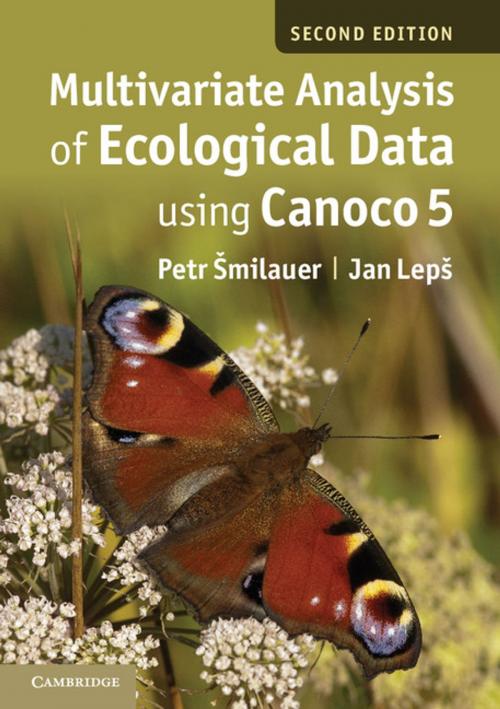Multivariate Analysis of Ecological Data using CANOCO 5
Nonfiction, Science & Nature, Nature, Environment, Ecology, Science| Author: | Petr Šmilauer, Jan Lepš | ISBN: | 9781139949880 |
| Publisher: | Cambridge University Press | Publication: | April 17, 2014 |
| Imprint: | Cambridge University Press | Language: | English |
| Author: | Petr Šmilauer, Jan Lepš |
| ISBN: | 9781139949880 |
| Publisher: | Cambridge University Press |
| Publication: | April 17, 2014 |
| Imprint: | Cambridge University Press |
| Language: | English |
This revised and updated edition focuses on constrained ordination (RDA, CCA), variation partitioning and the use of permutation tests of statistical hypotheses about multivariate data. Both classification and modern regression methods (GLM, GAM, loess) are reviewed and species functional traits and spatial structures analysed. Nine case studies of varying difficulty help to illustrate the suggested analytical methods, using the latest version of Canoco 5. All studies utilise descriptive and manipulative approaches, and are supported by data sets and project files available from the book website: http://regent.prf.jcu.cz/maed2/. Written primarily for community ecologists needing to analyse data resulting from field observations and experiments, this book is a valuable resource to students and researchers dealing with both simple and complex ecological problems, such as the variation of biotic communities with environmental conditions or their response to experimental manipulation.
This revised and updated edition focuses on constrained ordination (RDA, CCA), variation partitioning and the use of permutation tests of statistical hypotheses about multivariate data. Both classification and modern regression methods (GLM, GAM, loess) are reviewed and species functional traits and spatial structures analysed. Nine case studies of varying difficulty help to illustrate the suggested analytical methods, using the latest version of Canoco 5. All studies utilise descriptive and manipulative approaches, and are supported by data sets and project files available from the book website: http://regent.prf.jcu.cz/maed2/. Written primarily for community ecologists needing to analyse data resulting from field observations and experiments, this book is a valuable resource to students and researchers dealing with both simple and complex ecological problems, such as the variation of biotic communities with environmental conditions or their response to experimental manipulation.















